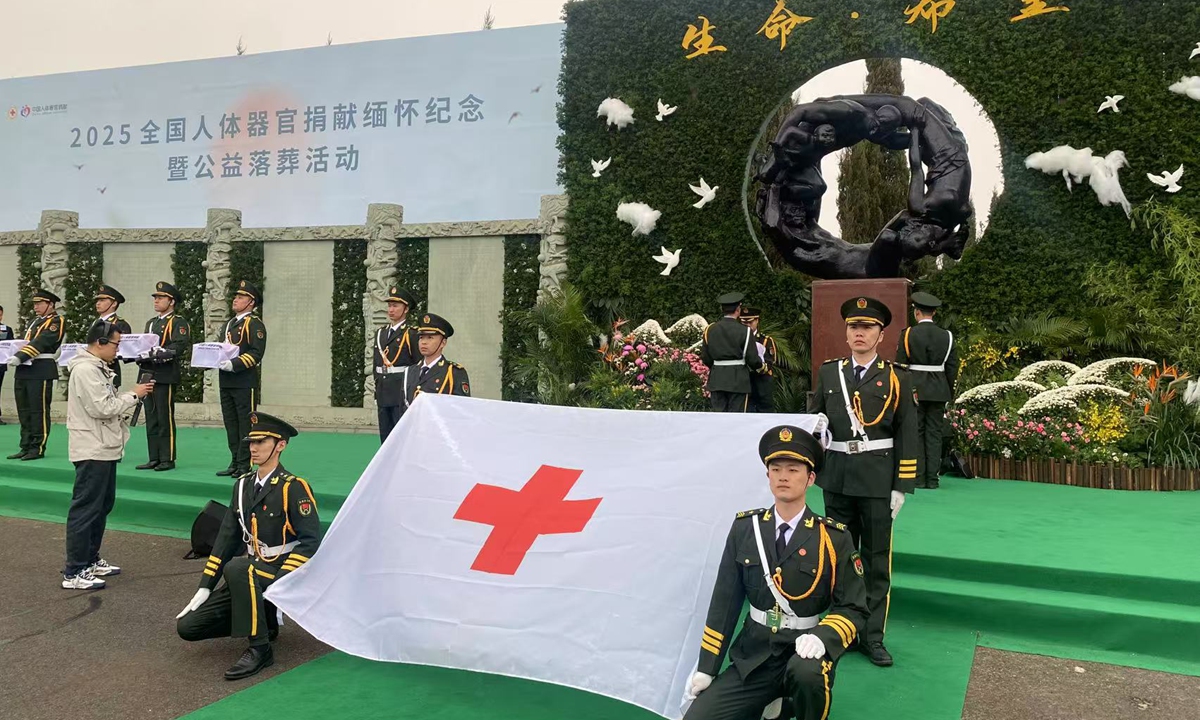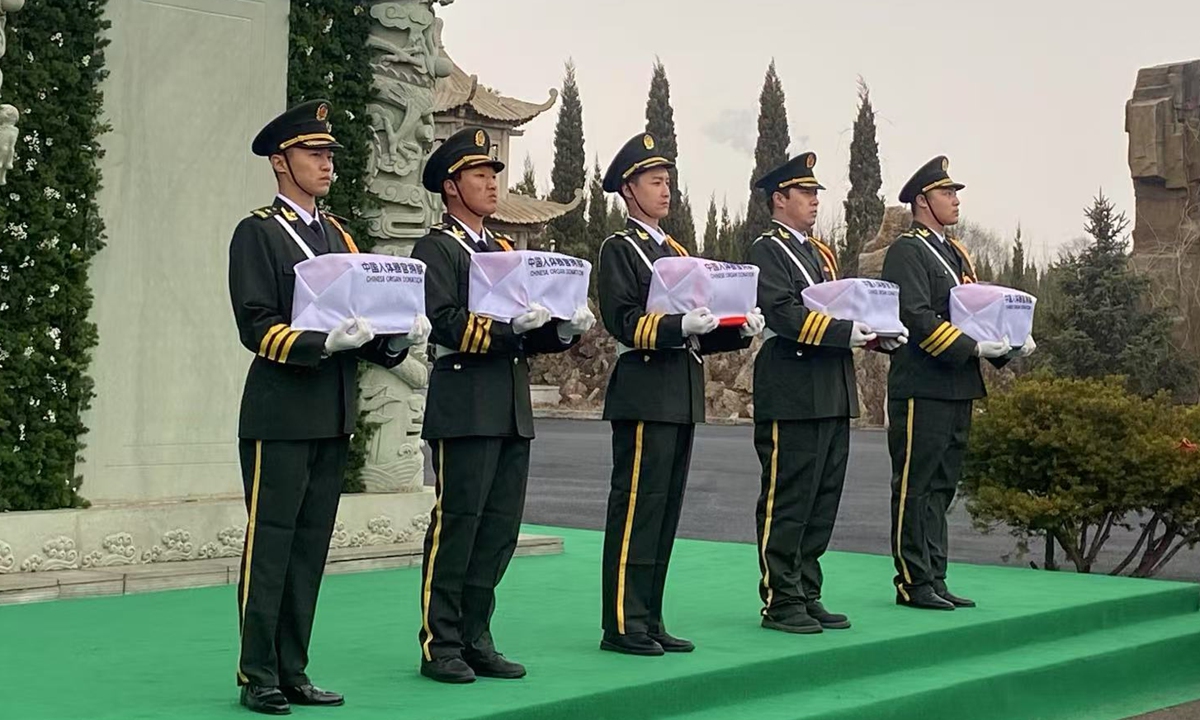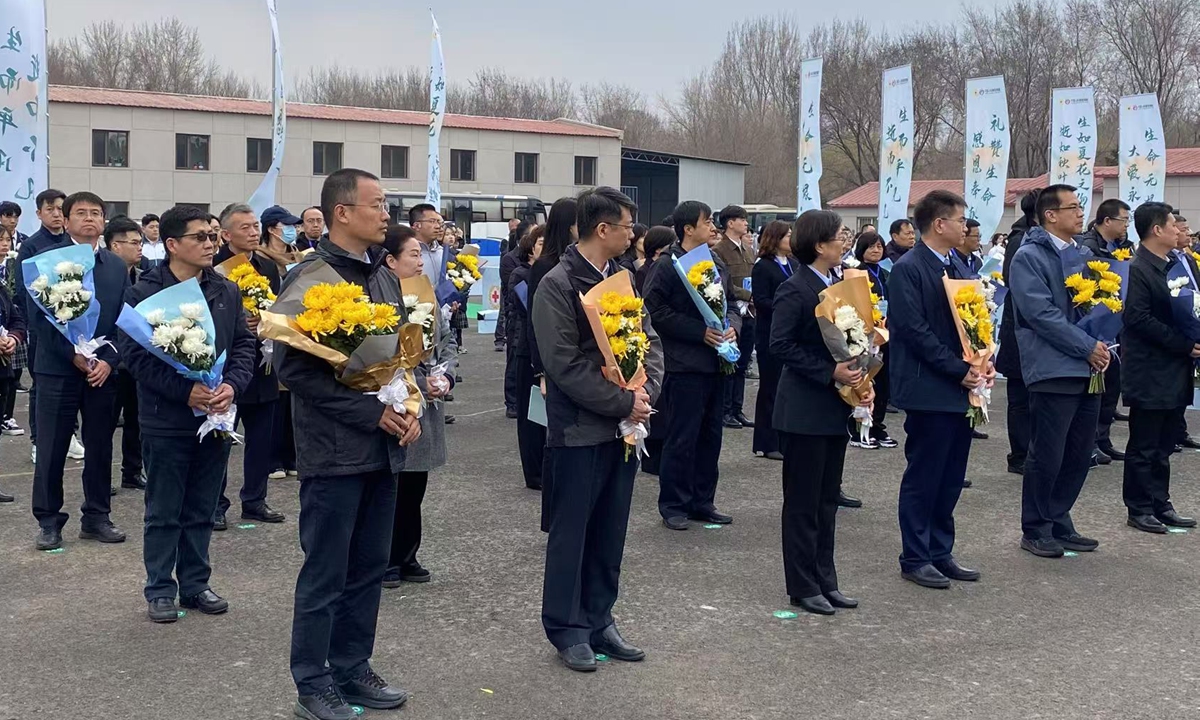
Soldiers take part in China's annual national commemoration event for human organ donation in Shenyang, Northeast China's Liaoning Province, on April 1, 2025. Photo: Zhang Wanshi/GT
China's annual national commemoration event for human organ donation was held in Shenyang, Northeast China's Liaoning Province, on Tuesday. Health officials announced at the event that China has seen a year-on-year increase in organ donation and transplants, with over 7.05 million people registered as organ donors in the country.
The event, held ahead of the Qingming Festival - a traditional holiday for honoring the deceased - featured stories of organ donors and their families, transplant recipients, and donation coordinators. It also included a memorial ceremony for 26 donors, with a moment of silence and floral tributes. Attendees included officials, family representatives of the donors, and medical students.
To date, over 7.05 million people have registered as organ donors in the country, according to the event. There have been more than 58,000 organ donations, 63,000 body donations, and 110,000 corneal donations, restoring sight to 100,000, saving over 170,000 lives and supporting medical education and research.

Soldiers take part in China's annual national commemoration event for human organ donation in Shenyang, Northeast China's Liaoning Province, on April 1, 2025. Photo: Zhang Wanshi/GT
"Through long-term and tireless efforts from all parties, the number of organ donations and transplants in China has significantly increased," said Gao Guangming, deputy director of the Department of Medical Emergency Response at the National Health Commission, during the event. "In 2024, China recorded 6,744 cases of organ donations and 24,684 transplant surgeries in 2024, representing year-on-year increases of 4.5 percent and 3.3 percent, respectively, marking a new historic breakthrough."
This national annual commemoration, guided by the Red Cross Society of China and the National Health Commission and organized by the China Organ Donation Administrative Center (CODAC), is also a promotional activity for organ donation.

People hold flowers in honor of organ donors during a memorial ceremony held in Shenyang, Northeast China's Liaoning Province, on April 1, 2025. Photo: Zhang Wanshi/GT
The publicity ambassador for human organ donation in China, Zhang Dingyu, was appointed to the role in March. A recipient of the national honorary title "The People's Hero" in 2020, Zhang was diagnosed with amyotrophic lateral sclerosis (ALS), a fatal and incurable disease, but he remained on the frontlines during the COVID-19 pandemic. In 2022, he made the decision to donate his body for future research on ALS.
Speaking about his current condition on Tuesday, Zhang noted that the condition of his lower limbs has gradually grown more severe, while his upper limbs, fingers, and lower back occasionally experience cramps and spasms. However, he emphasized that his overall physical condition remains relatively stable and said he is not a typical ALS patient.
Becoming a donor was only natural for him, Zhang said. While the traditional view is that our bodies belong to our parents, Zhang said he believes they also belong to society and humanity as a whole.
Zhang currently still serves as a medical worker at Union Hospital, Tongji Medical College, Huazhong University of Science and Technology and Hubei Jiangxia Laboratory.
"We are conducting gene knockout research and seek collaboration to advance studies on gene-knockout organisms, including pig organs such as kidneys and hearts, as part of an effort to explore potential alternatives to organ donation. Through these studies, we strive to better meet clinical needs and enhance service to the public," Zhang told the Global Times.
Currently, more than 280 memorial sites for organ donors have been established across the country. Within a week, various provinces in China held a series of organ donor commemorations, including East China's Jiangsu, Northwest China's Gansu, East China's Fujian, and South China's Guangdong, with the purpose of expressing gratitude and respect to organ donors and their families, and raising public awareness about the significance of organ donation.






